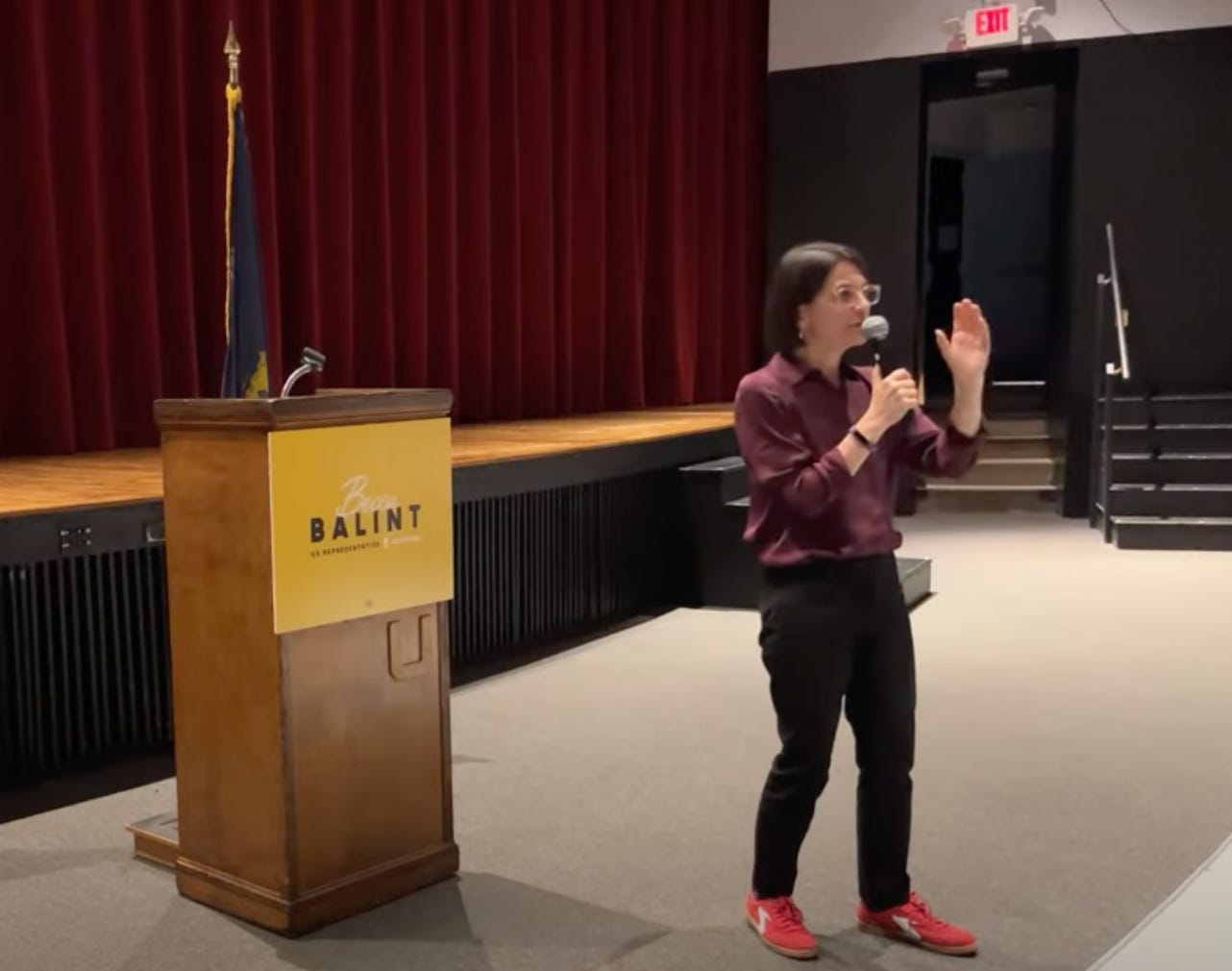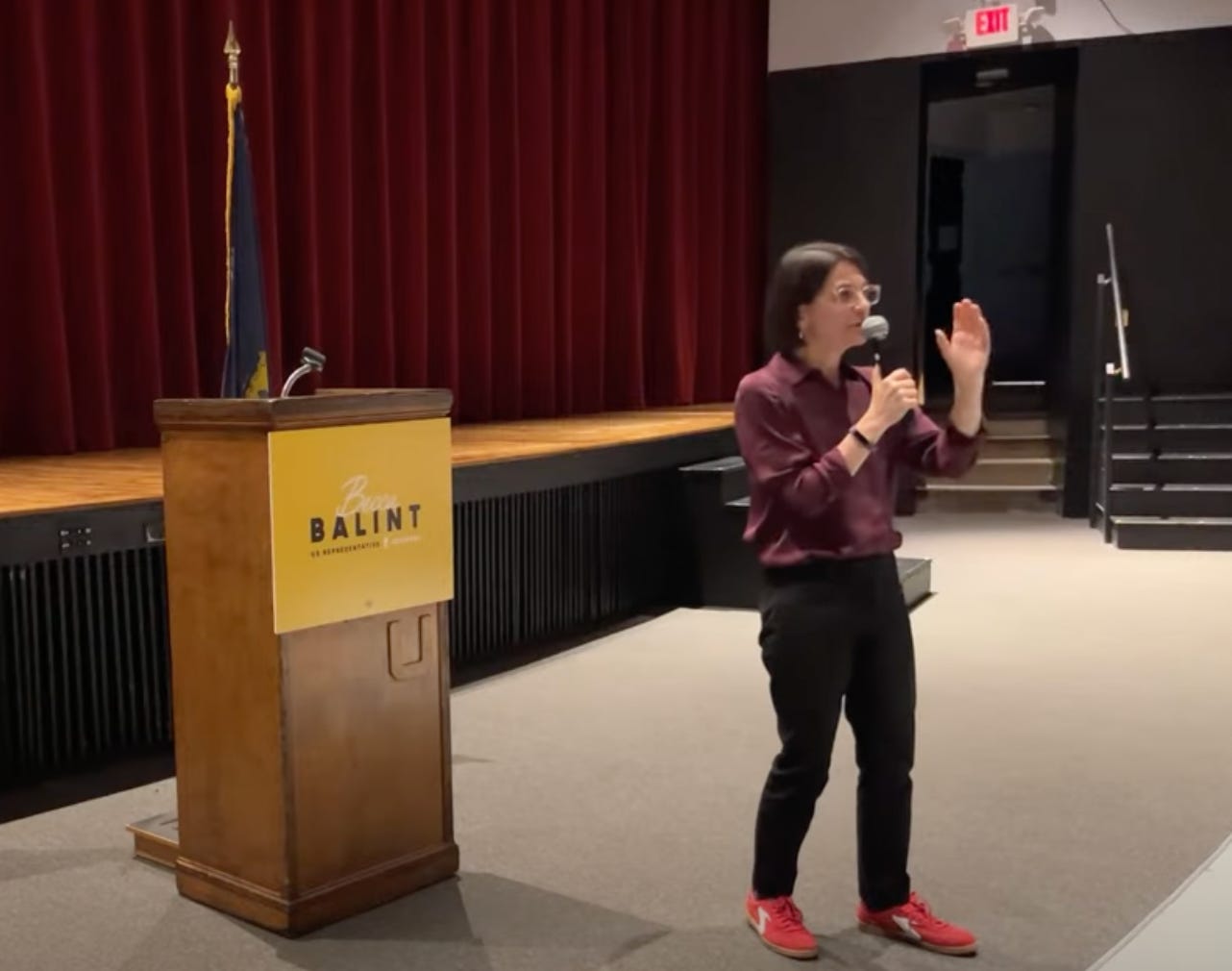Potty Politics: Becca Balint's "wipe our a**es" comment sparks hot debate on immigration
A recent town hall comment by U.S. Representative Becca Balint (D-Vt.) has ignited a firestorm of reactions, highlighting the deep divisions in America’s immigration discourse. Speaking in Newport, Vermont, Balint reportedly said, “If we don’t have avenues for people to come here legally to work or to build a home here… we’re not gonna have anyone around to wipe our a**es because we don’t have enough people.” The candid remark, aimed at addressing labor shortages, has drawn both praise and criticism, amplifying discussions about immigration policy, workforce challenges, and political rhetoric. As the controversy unfolds, its implications for Balint’s political future and the broader immigration debate remain under scrutiny.
What Happened
Balint’s comment came during a town hall in Newport. Balint was discussing the state’s workforce crisis—a persistent issue driven by an aging population and a lack of younger workers.
Vermont, like many rural states, faces acute shortages in sectors such as healthcare, agriculture, and elder care. Balint’s remark was part of a broader argument for expanding legal immigration pathways to address these gaps, emphasizing the essential roles immigrants play in sustaining communities.
The phrase, however, was blunt and provocative, invoking a visceral image tied to elder care—a sector heavily reliant on immigrant labor. While Balint’s intent was to underscore the practical need for immigration reform, the phrasing struck a nerve, prompting varied interpretations.
Reactions: A Spectrum of Sentiments
The response to Balint’s comment was swift and polarized, particularly on social media platforms like X, where posts amplified the controversy. Critics, including conservative commentators, seized on the remark as evidence of elitism or insensitivity.
These criticisms reflect a broader conservative narrative that accuses progressive politicians of exploiting immigration for political gain while undervaluing American workers. Some Vermonters echoed this sentiment, expressing discomfort with the comment’s tone.
“It’s not just what she said, but how she said it,” said Mark Coester, a 2024 congressional candidate who ran against Balint. “Vermonters want solutions, not crude soundbites that make us feel like we’re begging for help.”
On the other hand, Balint’s supporters argue the comment was taken out of context. Progressive activists and community leaders in Vermont defended her, noting her consistent advocacy for workers’ rights and comprehensive immigration reform.
“Becca was making a point about how critical immigrants are to our economy, especially in rural areas,” said Sarah Waring, a Brattleboro-based housing advocate. “She’s not afraid to be real, and that’s what we need—politicians who don’t sugarcoat the crisis we’re facing.”
Immigrant rights groups, such as Migrant Justice, a Vermont-based organization, offered measured support. “The language was unfortunate, but the underlying message aligns with what we’ve been saying: our communities depend on immigrant workers, and we need legal pathways to ensure dignity and stability,” said Marita Canedo, a spokesperson. However, Canedo urged Balint to clarify her remarks to avoid perpetuating stereotypes about immigrant labor.
National commentators weighed in, with some drawing parallels to past political gaffes where blunt language overshadowed policy discussions.
Balint’s Response
As the backlash grew, Balint’s office issued a statement on June 1, 2025, seeking to clarify her remarks. “My comment was meant to highlight the urgent need for immigration reform to address Vermont’s workforce shortages, particularly in elder care and other essential sectors,” Balint said. “I regret if my choice of words distracted from the issue. Immigrants are vital to our communities, and I’m committed to fighting for policies that honor their contributions.
”
What Happens Next?
For Balint, the path forward involves navigating the fallout while reinforcing her commitment to immigration reform. Sources close to her campaign indicate she plans to host additional town halls to discuss workforce solutions, with a focus on engaging directly with immigrant communities. “Becca’s not backing down—she’s doubling down on the policy,” said an aide, speaking anonymously. Balint is also expected to co-sponsor legislation aimed at streamlining legal immigration pathways, though details remain forthcoming.
On a broader scale, the controversy may spur renewed attention to rural workforce challenges. Advocacy groups like Migrant Justice are seizing the moment to push for state and federal policies that protect immigrant workers and create accessible legal pathways. Meanwhile, conservative groups in Vermont are mobilizing to frame the issue as a failure of Democratic leadership, setting the stage for immigration to be a key issue in the 2026 midterms.




Hi Renee, I hope you read the entire article. It is almost entirely dedicated to the seriousness of the matter and how these comments, intentional or not, allow debaters on both sides to move the issue away from the most important points. Thanks very much.
Disappointing that "Compass" chose to highlight the "distraction" rather than to focus on the seriousness of the real issue.